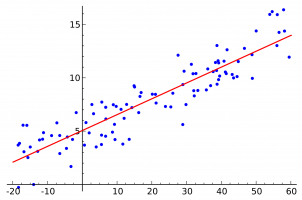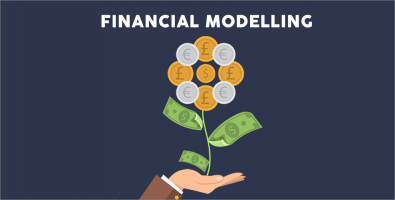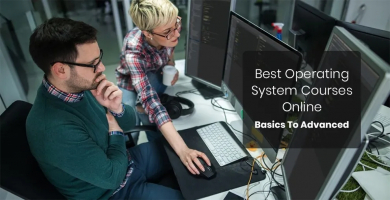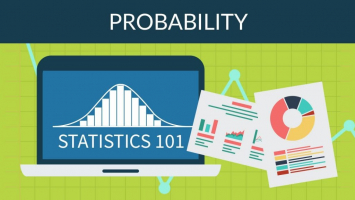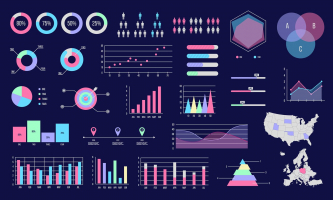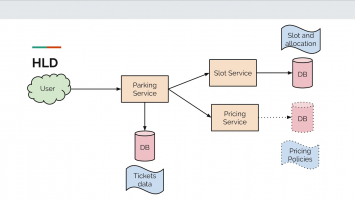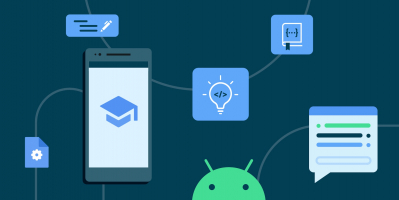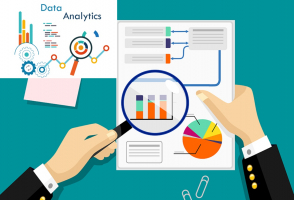Top 8 Best Online Linear Algebra Courses
In data science, Linear Algebra is used in data preprocessing, data transformation, dimensionality reduction, and model evaluation. That's why in this article. ... read more...This is a list of the top 8 best online Linear Algebra courses for Data Science and Machine Learning. So take your few minutes and find out some of the best resources for learning linear algebra for data science and machine learning.
-
Matrix Algebra for Engineers– Coursera is first in the list of best online Linear Algebra courses. Jeffrey R. Chasnov, a Professor of Mathematics at the Hong Kong University of Science and Technology, teaches this course. This course will teach you about matrices, linear equation systems, vector spaces, eigenvalues, and eigenvectors. This course is all about matrices and covers the linear algebra that every engineer should know in a concise manner. This course's mathematics is presented at the level of an advanced high school student, but students should typically take this course after completing a university-level single variable calculus course.
This course contains no derivatives or integrals, but students are expected to have a sufficient level of mathematical maturity. Nonetheless, anyone interested in learning the fundamentals of matrix algebra is welcome to join. The course consists of 38 short lecture videos, each with a few problems to solve. After each major topic, there is a brief practice quiz. The solutions to the problems and practice quizzes can be found in the lecture notes provided by the instructor. The course lasts four weeks and includes an assessed quiz at the end of each week.
Extra Benefits:
- You will get a Shareable Certificate upon completion.
- Along with this, you will get Course Videos & Readings, Practice Quizzes, Graded Assignments with Peer Feedback,
- Graded Quizzes with Feedback, Graded Programming Assignments.
Who Should Enroll?
- These who have a basic understanding of mathematics.
Rating: 4.9/5.0
Enroll here: coursera.org/learn/matrix-algebra-engineers
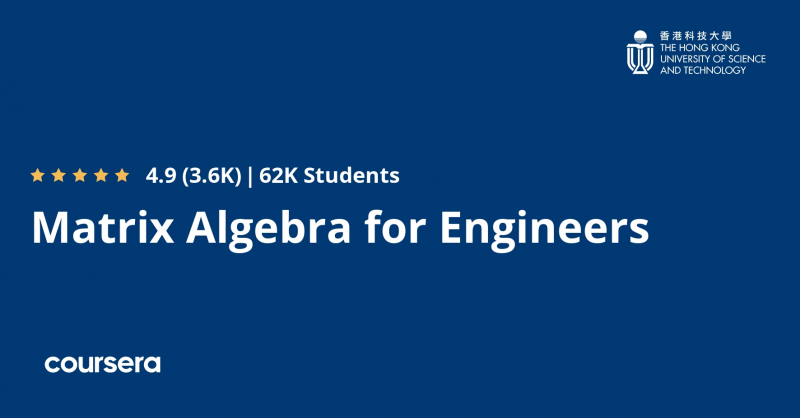
coursera.org 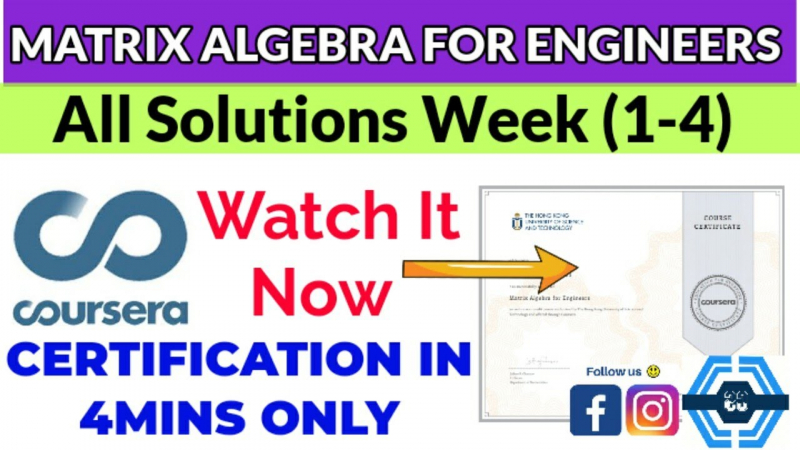
youtube.com -
Become a Linear Algebra Master– Udemy ranks 2nd in the list of best online Linear Algebra courses. This linear algebra course is not dedicated to data science learners but covers all required linear algebra topics for data science. In this course, you will learn Matrices as vectors, Matrix-vector products, Inverses, Transposes, etc. This 247-lesson course includes video and text explanations of everything from Linear Algebra, and it includes 69 quizzes (with solutions!) and an additional 12 workbooks with extra practice problems, to help you test your understanding along the way.
The most important things to remember are found in the notes section of each lesson. It's similar to Cliff Notes, but for math. Nothing you don't need to know in order to pass your class. When you believe you have a good understanding of a course topic, you can put your knowledge to the test by taking one of the quizzes. Congratulations! If not, you can go over the videos and notes again, or you can ask for assistance in the Q&A section. Do you need more practice? When you've finished the section, go through the bonus workbook to review everything you've learned. The workbooks include tons of extra practice problems, so they're a great way to solidify what you just learned in that section.
What you will learn:
- Operations on one matrix, including solving linear systems, and Gauss-Jordan elimination
- Operations on two matrices, including matrix multiplication and elimination matrices
- Matrices as vectors, including linear combinations and span, linear independence, and subspaces
- Dot products and cross products, including the Cauchy-Schwarz and vector triangle inequalities
- Matrix-vector products, including the null and column spaces, and solving Ax=b
- Transformations, including linear transformations, projections, and composition of transformations
- Inverses, including invertible and singular matrices, and solving systems with inverse matrices
- Determinants, including upper and lower triangular matrices, and Cramer's rule
- Transposes, including their determinants, and the null (left null) and column (row) spaces of the transpose
- Orthogonality and change of basis, including orthogonal complements, projections onto a subspace, least squares, and changing the basis
- Orthonormal bases and Gram-Schmidt, including definition of the orthonormal basis, and converting to an orthonormal basis with the Gram-Schmidt process
- Eigenvalues and Eigenvectors, including finding eigenvalues and their associate eigenvectors and eigenspaces, and eigen in three dimensions
Extra Benefits:
- You will get a Certificate of completion.
- Along with this, you will get 171 downloadable resources and 98 articles.
Who Should Enroll?
- Those who know linear algebra basics.
Rating: 4.8/5.0
Enroll here: udemy.com/course/linear-algebra-course
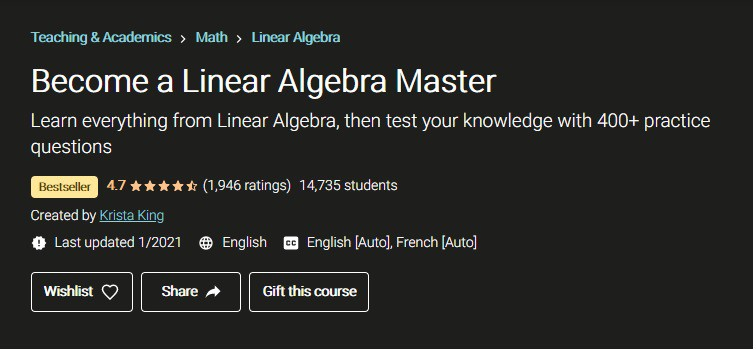
takethiscourse.net -
Linear Algebra Refresher Course ranks 3rd in the list of best online Linear Algebra courses. This is a Free lesson course to learn the basics of direct algebra. In this course, you'll learn the introductory operations of vectors and the geometric and algebraic interpretation of corners of “ flat ” objects. You'll also learn how to write your own algorithm to find the corners of sets of lines and planes . After completing this course, you'll have enciphered your own particular library of direct algebra functions that you can use to solve real- world problems.
Thismini-course is intended for scholars who would like a lesson on the basics of direct algebra. The course attempts to give the provocation for" why" direct algebra is important in addition to" what" direct algebra is. scholars will learn generalities in direct algebra by applying them in computer programs. At the end of the course, you'll have enciphered your own particular library of direct algebra functions that you can use to break real- world problems.
Included in product:
- Rich Learning ContentRich Learning Content
- Interactive QuizzesInteractive Quizzes
- Taught by Industry ProsTaught by Industry Pros
- Self-Paced LearningSelf-Paced Learning
Time to Complete- 4 Months
Rating: 4.7/5.0
Enroll here: udacity.com/course/linear-algebra-refresher-course--ud953
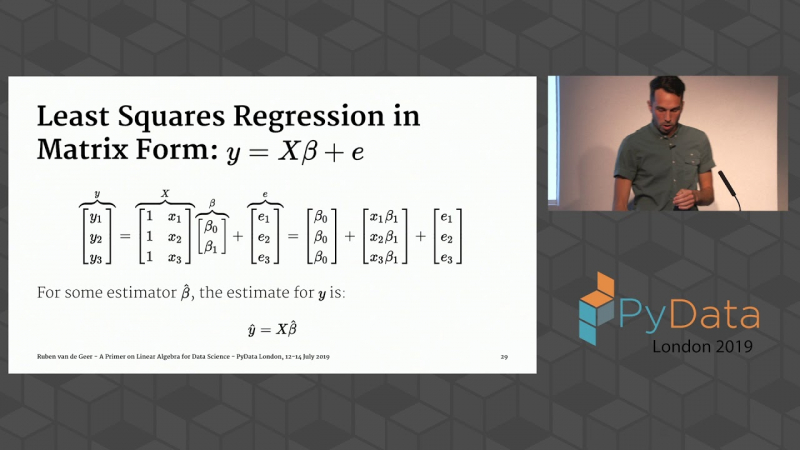
youtube.com 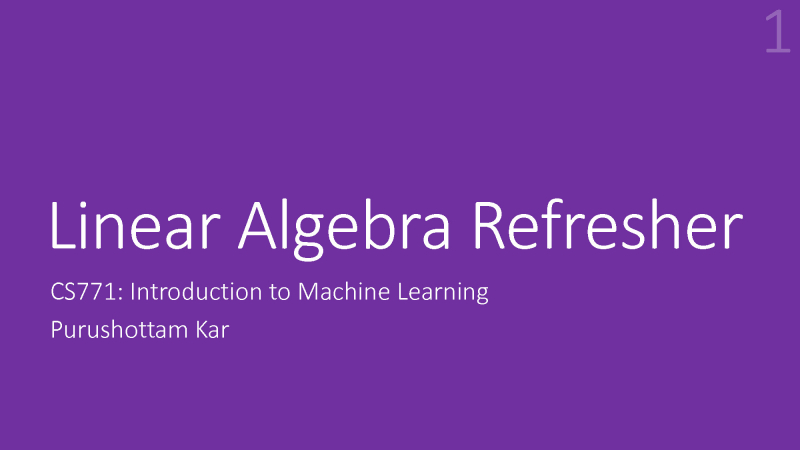
studypool.com -
Mathematics for Machine Learning: Linear Algebra– Coursera ranks 4th in the list of best online Linear Algebra courses. In this course on Linear Algebra they look at what direct algebra is and how it relates to vectors and matrices. also they look through what vectors and matrices are and how to work with them, including the knotty problem of eigenvalues and eigenvectors, and how to use these to break problems. Eventually they look at how to use these to do delightful effects with datasets- like how to rotate images of faces and how to prize eigenvectors to look at how the Pagerank algorithm works.
Since they are aiming at data- driven operations, they'll be enforcing some of these ideas in law, not just on pencil and paper. Towards the end of the course, you will write law blocks and encounter Jupyter scrapbooks in Python, but do not worry, these will be relatively short, riveted on the generalities, and will guide you through if you ’ve not enciphered ahead. At the end of this course you'll have an intuitive understanding of vectors and matrices that will help you bridge the gap into direct algebra problems, and how to apply these generalities to machine literacy.
Skills you will gain:
- Eigenvalues And Eigenvectors
- Basis (Linear Algebra)
- Matrix transformation
- Linear Algebra
Syllabus of the Course-
- Introduction to Linear Algebra and to Mathematics for Machine Learning
- Vectors are objects that move around space
- Matrices in Linear Algebra: Objects that operate on Vectors
- Matrices make linear mappings
- Eigenvalues and Eigenvectors: Application to Data Problems
Extra Benefits-
- You will get a Shareable Certificate upon completion.
- Along with this, you will get Course Videos & Readings, Practice Quizzes, Graded Assignments with Peer Feedback, Graded Quizzes with Feedback, Graded Programming Assignments.
Who Should Enroll?
- Those who have studied high school linear algebra.
- Time to Complete- 19 hours
Rating: 4.7/5.0
Enroll here: coursera.org/learn/linear-algebra-machine-learning
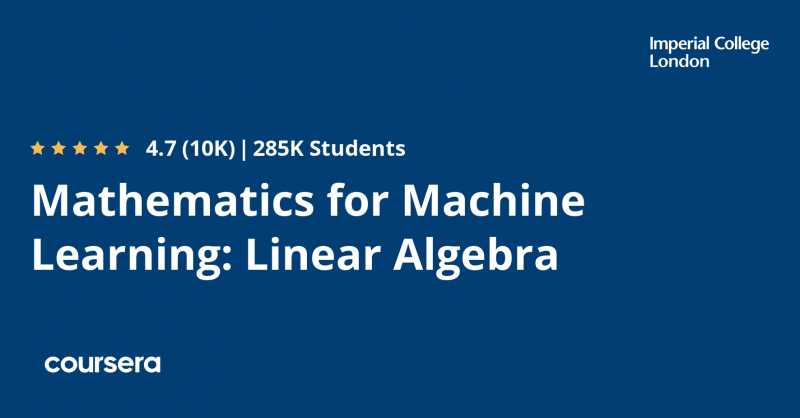
coursera.org -
Mathematics for Machine Learning ranks 5th in the list of best online Linear Algebra courses. In this course on Linear Algebra you look at what direct algebra is and how it relates to vectors and matrices also they look through what vectors and matrices are and how to work with them, including the knotty problem of eigenvalues and eigenvectors, and how to use these to break problems. Eventually you look at how to use these to do delightful effects with datasets- like how to rotate images of faces and how to prize eigenvectors to look at how the Pagerank algorithm works.
Since they are aiming at data- driven operations, they'll be enforcing some of these ideas in law, not just on pencil and paper. Towards the end of the course, you will write law blocks and encounter Jupyter scrapbooks in Python, but do not worry, these will be relatively short, riveted on the generalities, and will guide you through if you ’ve not enciphered ahead. At the end of this course you'll have an intuitive understanding of vectors and matrices that will help you bridge the gap into direct algebra problems, and how to apply these generalities to machine literacy.
Syllabus of the Course-
- Systems of linear equations and linear classifier
- Full rank decomposition and systems of linear equations
- Euclidean spaces
- Final Project
Extra Benefits-
- You will get a Shareable Certificate upon completion.
- Along with this, you will get Course Videos & Readings, Practice Quizzes, Graded Assignments with Peer Feedback, Graded Quizzes with Feedback, Graded Programming Assignments.
Who Should Enroll?
- Those who are familiar with Python Programming and basic algebra.
Time to Complete- 14 hours
Rating: 4.6/5.0
Enroll here: coursera.org/specializations/mathematics-machine-learning
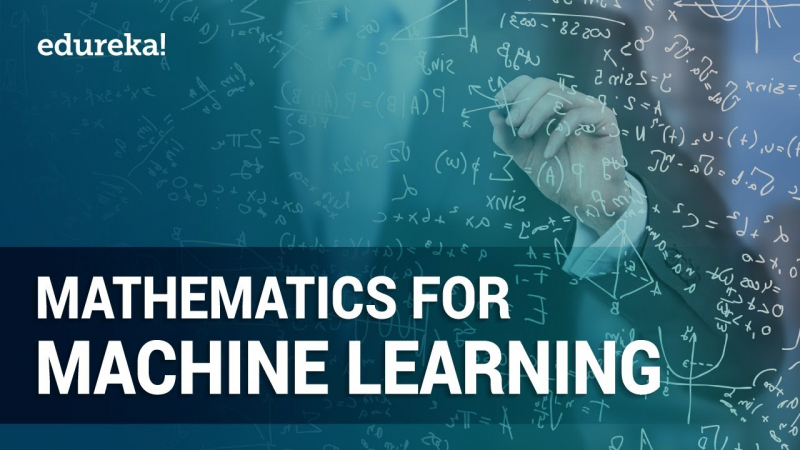
youtube.com 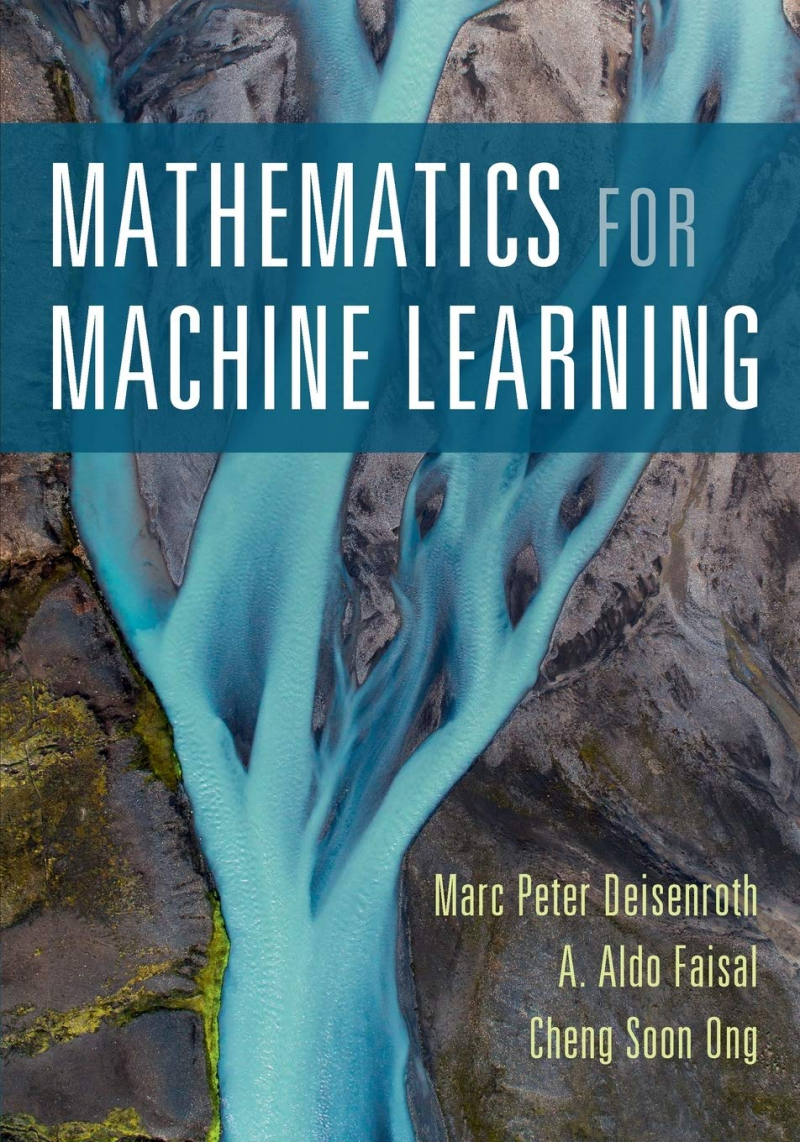
fado.vn -
Linear Algebra for Data Science in R-Datacamp ranks 6th in the list of best online Linear Algebra courses. Linear algebra is a crucial set of tools in applied mathematics and data science. You'll learn how to work with vectors and matrices, solve matrix-vector equations, perform eigenvalue/eigenvector analyses, and use principal component analysis to reduce dimension on real-world datasets in this course.
All analyses will be carried out in R, one of the most popular programming languages in the world. In this course, you will learn the fundamentals of linear algebra, such as vectors and matrices, eigenvalue and eigenvector analyses, and so on. You will also learn how to use principal component analysis to perform dimension reduction on real-world datasets.
This course use the R programming language for performing all analysis. There are 4 chapters in this course
- Introduction to Linear Algebra
- In this chapter, you will learn about the key objects in linear algebra, such as vectors and matrices. You will understand why they are important and how they interact with each other.
- Matrix-Vector Equations
- Many machine learning algorithms boil down to solving a matrix-vector equation. In this chapter, you learn what matrix-vector equations are trying to accomplish and how to solve them in R.
- Eigenvalues and Eigenvectors
- Matrix operations are complex. Eigenvalue/eigenvector analyses allow you to decompose these operations into simpler ones for the sake of image recognition, genomic analysis, and more!
- Principal Component Analysis
- “Big Data” is ubiquitous in data science and its applications. However, redundancy in these datasets can be problematic. In this chapter, you learn about principal component analysis and how it can be used in dimension reduction.
Who Should Enroll?
- Those who know R programming language.
Rating: 4.2/5.0
Enroll here: datacamp.com/courses/linear-algebra-for-data-science-in-r
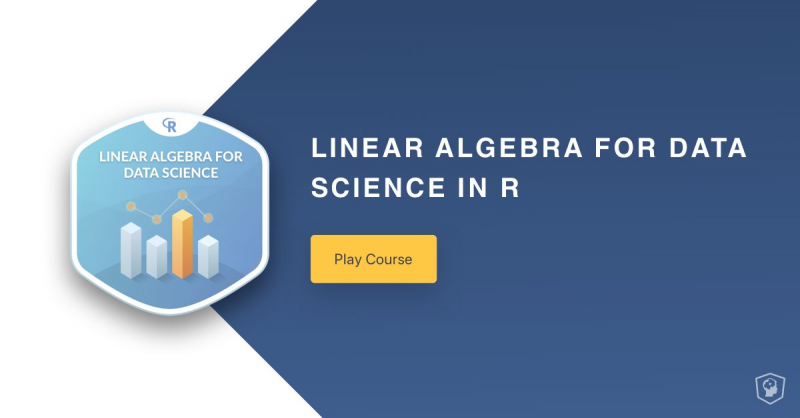
twitter.com 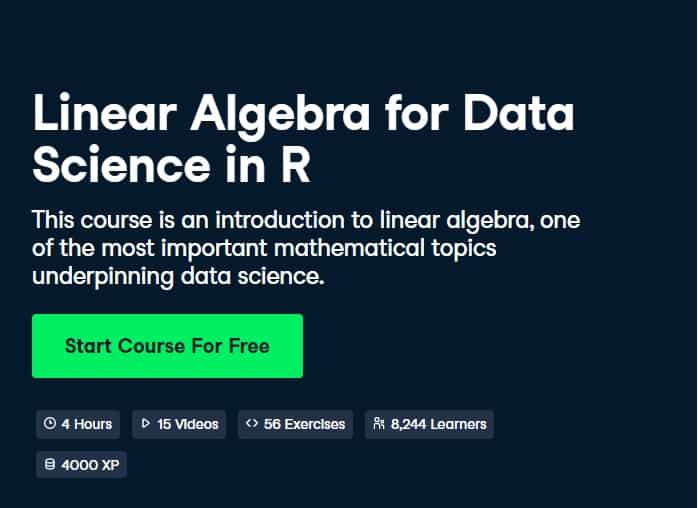
mltut.com - Introduction to Linear Algebra
-
Linear Algebra – Foundations to Frontiers– edX ranks 7th in the list of best online Linear Algebra courses. Linear Algebra: Foundations to Frontiers (LAFF) is packed full of challenging, rewarding material that is essential for mathematicians, engineers, scientists, and anyone working with large datasets. Students appreciate unique approach to teaching linear algebra because:
- It's visual.
- It connects hand calculations, mathematical abstractions, and computer programming.
- It illustrates the development of mathematical theory.
- It's applicable.
In this course, you will learn all of the standard topics taught in typical undergraduate linear algebra courses around the world, but you will also learn more! LAFF was inspired by the syllabus of an introductory linear algebra course taught by Professor Robert van de Geijn, an expert on high performance linear algebra libraries, at The University of Texas at Austin. You will learn Vector and Matrix Operations, Linear Transformations, Solving Systems of Equations, Vector Spaces, Linear Least-Squares, and Eigenvalues and Eigenvectors through short videos, exercises, visualizations, and programming assignments. Furthermore, you will see cutting-edge research on the development of linear algebra libraries, which are widely used in computational science. Participants will be provided with free MATLAB licenses for the duration of the course.
At a glance
- Institution: UTAustinX
- Subject: Computer Science
- Level: Intermediate
- Prerequisites:High School Algebra, Geometry, and Pre-Calculus.
- Language: English
- Video Trascript: English
What you'll learn
- Skip What you'll learn
- Connections between linear transformations, matrices, and systems of linear equations
- Partitioned matrices and characteristics of special matrices
- Algorithms for matrix computations and solving systems of equations
- Vector spaces, subspaces, and characterizations of linear independence
- Orthogonality, linear least-squares, eigenvalues and eigenvectors
Rating: 4.2/5.0
Enroll here: edx.org/course/linear-algebra-foundations-to-frontiers
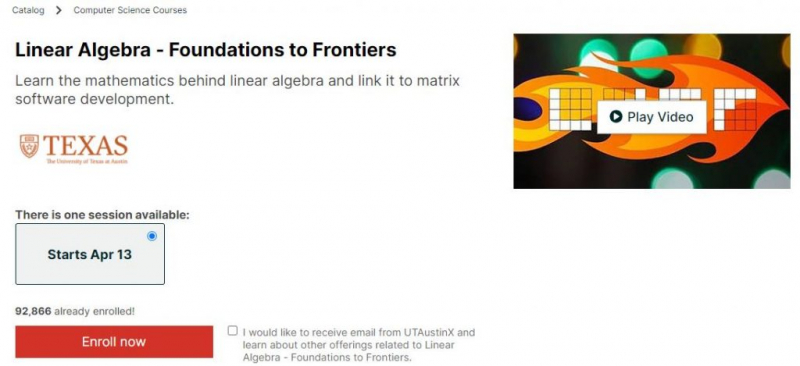
takethiscourse.net -
Linear algebra is at the core of all of ultramodern mathematics, and is used far and wide from statistics and data wisdom, to economics, drugs and electrical engineering. still, learning the subject isn't basically about acquiring computational capability, but is more a matter of ignorance in its language and proposition.
In this course, you start with systems of direct equations and connect them to vectors and vector spaces, matrices, and direct transformations. They emphasize vocabulary throughout, so that scholars feel comfortable working with different aspects. They also introduced matrix and vector operations similar to matrix addition and subtraction, paying particular attention to their original purpose. Scholars not only learn how to compute, but also why they work the way they do.
They discuss important generalizations of bases and dimensions, which form the basis for many more advanced generalizations of direct algebra. The final chapter deals with the inner products, allowing us to use algebra directly to access the results; you'll see how this enables operations ranging from statistics and direct retrieval to digital audio.
At a glance
- Institution: RICEx
- Subject: Math
- Level: Intermediate
- Prerequisites:High school algebra. Some calculus is useful for certain examples or problems but is not strictly necessary.
- Language: English
- Video Transcript: English
- Associated programs:
- MicroBachelors Program in Elements of Data Science
What you'll learn
- The relationships between linear equations, matrices, and linear transformations; the principles of vector and matrix operations; the significance of basis and dimension of a vector space; the applications of inner products and orthogonality.
Time to Complete- 8 Weeks( If you spend 6-8 hours per week)
Rating: 4.0/5.0
Enroll here: edx.org/course/math-of-data-science-linear-algebra
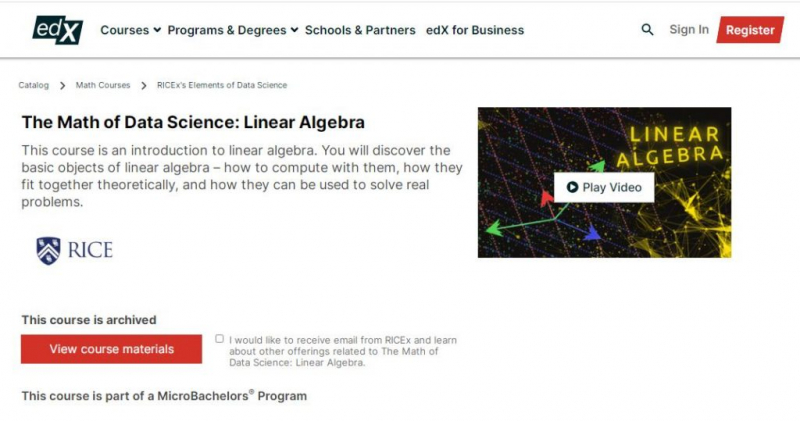
helptostudy.com










